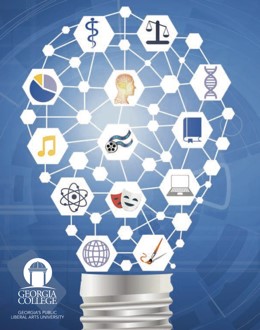Quantum Computing With Bose-Einstein Condensates: A Literature Survey
Abstract
Classical computers have begun to reach the limit of technological advancement. The key to pushing this limit may be in Quantum Computing. The purpose of this survey is to establish a better understanding of Bose-Einstein Condensates and their potential role in Quantum Computing. A Bose-Einstein Condensate (BEC), was predicted by Albert Einstein based on findings from Satyendra Nath Bose on the quantum statistics of light quanta. BEC is a new form of matter in which all particles occupy the same quantum state. To achieve Bose-Einstein Condensation, one must use a combination of laser and evaporative cooling techniques to cool a gas of Bosons (particles with single integer spin such as Sodium and Rubidium) to extremely low temperatures (within Nano kelvin of absolute zero). BECs have been shown to have properties that could play an essential role in the future of Quantum computing. This is because, whereas most computers use bits (1’s and 0’s) to register and process information, Quantum computers use quantum bits (qubits), which can be both a 1 and a 0 at the same time. This superposition of 1 and 0 will allow us to create new algorithms resulting in faster computations. Based on the literature survey I conducted, I will convey the importance of BECs and their practical applications in the advancement of technology.
Quantum Computing With Bose-Einstein Condensates: A Literature Survey
Classical computers have begun to reach the limit of technological advancement. The key to pushing this limit may be in Quantum Computing. The purpose of this survey is to establish a better understanding of Bose-Einstein Condensates and their potential role in Quantum Computing. A Bose-Einstein Condensate (BEC), was predicted by Albert Einstein based on findings from Satyendra Nath Bose on the quantum statistics of light quanta. BEC is a new form of matter in which all particles occupy the same quantum state. To achieve Bose-Einstein Condensation, one must use a combination of laser and evaporative cooling techniques to cool a gas of Bosons (particles with single integer spin such as Sodium and Rubidium) to extremely low temperatures (within Nano kelvin of absolute zero). BECs have been shown to have properties that could play an essential role in the future of Quantum computing. This is because, whereas most computers use bits (1’s and 0’s) to register and process information, Quantum computers use quantum bits (qubits), which can be both a 1 and a 0 at the same time. This superposition of 1 and 0 will allow us to create new algorithms resulting in faster computations. Based on the literature survey I conducted, I will convey the importance of BECs and their practical applications in the advancement of technology.


